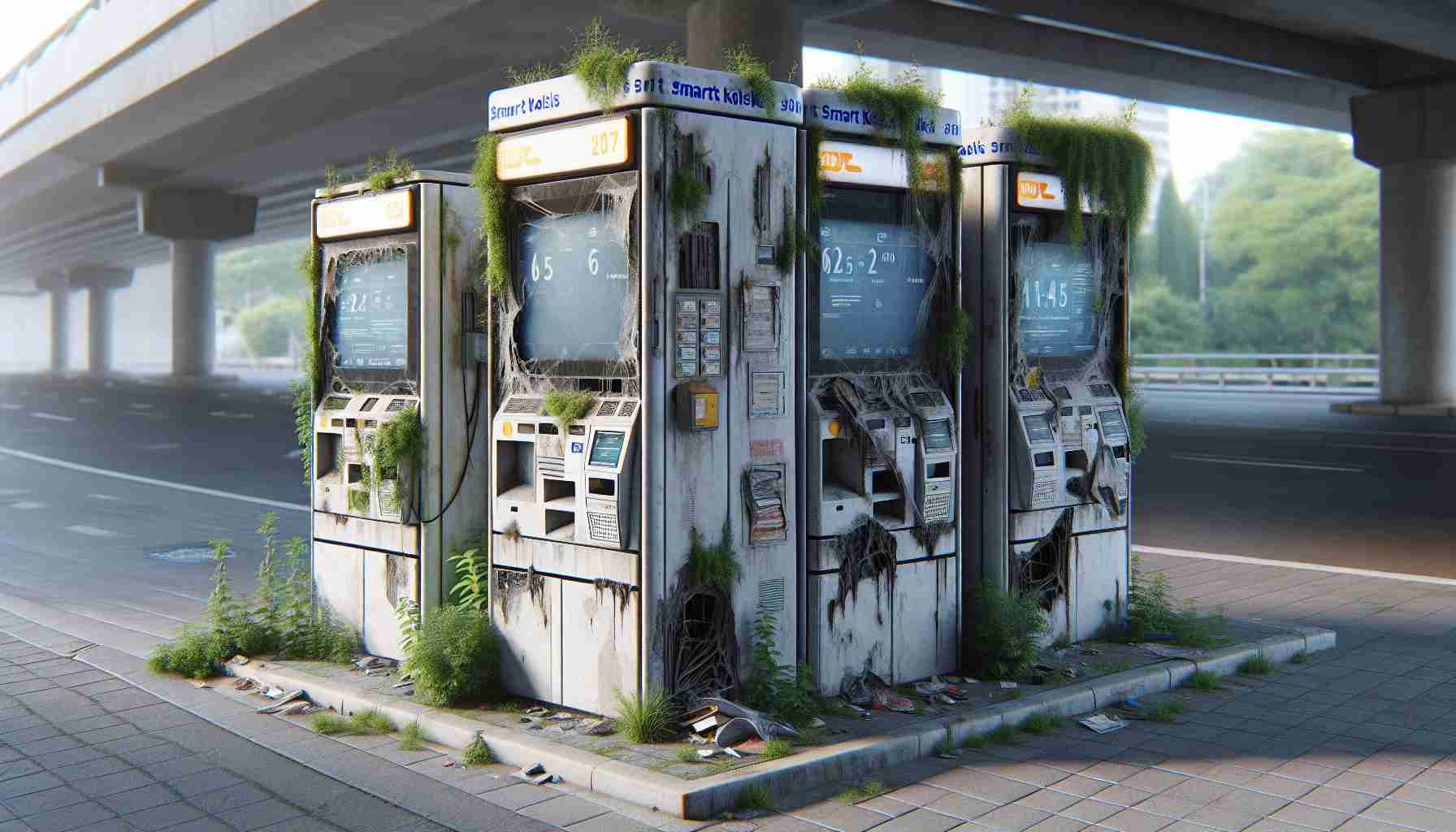- Bhubaneswar’s digital service initiative has faced significant operational challenges, leading to abandoned kiosks.
- The Smart Digital Kiosk project, launched in 2019, aimed to enhance public service delivery but has fallen short due to neglect.
- Residents express disappointment over non-functional kiosks that were meant to streamline everyday tasks.
- Impact of the Covid-19 pandemic has worsened the situation, causing delays in maintenance and staffing shortages.
- BSCL officials are developing plans to revitalize the kiosks for better service delivery.
- Ongoing maintenance and commitment are essential for the success of smart city projects.
In the bustling city of Bhubaneswar, a revolution in digital services has hit a snag, leaving residents frustrated and kiosks abandoned. These once-gleaming solar-powered kiosks, installed at 75 vital locations to streamline bill payments, ticket bookings, and navigation, are now relics of a forgotten promise.
Residents can’t help but express their disappointment. Imagine walking up to a sleek kiosk equipped with display boards and mobile charging points, only to find it out of order! One local shared how he initially mistook one for an ATM, showcasing the potential they hold. However, their initial promise has withered as many kiosks, part of the Smart Digital Kiosk project launched in 2019, succumb to neglect.
Urban planners voice their concerns, pointing out that these digital hubs were meant to transform public service delivery. Yet, without regular maintenance or operational protocols, they’ve become useless. A resident lamented that if these machines can’t function, they should be removed to prevent further disappointment.
The challenges facing this initiative were exacerbated by the Covid-19 pandemic, which delayed upkeep efforts and led to manpower shortages. However, hope is on the horizon: BSCL officials are crafting revival plans to restore these kiosks to their intended glory.
As one resident rightly observed, Bhubaneswar’s transformation under the Smart City Mission is impressive, but effective maintenance is crucial for sustained success. Let this be a wake-up call: for smart projects to thrive, they need continual care and commitment.
Reviving Bhubaneswar’s Smart Kiosk Revolution: What’s Next?
The Challenges and Future of Digital Kiosks in Bhubaneswar
Bhubaneswar’s ambitious Smart Digital Kiosk project, launched in 2019, has faced significant challenges, ultimately leaving many solar-powered kiosks inoperative. Originally designed to enhance urban living by facilitating bill payments, ticket bookings, and more, these kiosks now stand as reminders of unfulfilled promises, drawing frustration from residents who once hoped for an improved digital interface in their daily lives.
Key Aspects of the Situation
– Operational Limitations: Many kiosks are currently out of order due to insufficient maintenance and technical support, which hampers the user experience.
– Impact of COVID-19: The pandemic not only stalled maintenance efforts but also diverted resources, exacerbating the decline of these digital services.
– Future Plans: BSCL officials are reportedly working on revival strategies, which may include regular checks, updates to technology, and community engagement to ensure these kiosks serve their intended purpose.
Innovations and Insights
– Smart City Initiatives: The Smart City Mission aims to utilize technology for urban development, yet, as illustrated by the kiosks, it necessitates continual support and innovation to remain relevant.
– Sustainability Efforts: Sustainable practices, including solar power usage, signify a commitment to green solutions, but they require ongoing investment and upkeep to function effectively.
Pricing and Specifications
While specific pricing details for the installation and maintenance of the kiosks haven’t been publicly disclosed, investments in such technology typically vary depending on the features and services provided. The specifications initially included solar panels, touchscreen interfaces, and multiple digital service options, which have yet to be re-evaluated and updated.
Three Important Questions Answered
1. What caused the failure of the digital kiosks in Bhubaneswar?
The lack of regular maintenance, compounded by disruptions due to the COVID-19 pandemic, has led to many kiosks being non-functional. Initially established as part of the Smart City project, they faced operational challenges from the beginning.
2. Are there any plans for restoring the kiosks?
Yes, BSCL officials are formulating revival plans. These plans are expected to address maintenance issues and develop a strategy for ensuring the kiosks meet the needs of the public and remain operational.
3. What must be done for the Smart City Mission to succeed?
For the Smart City initiatives to thrive, there must be a commitment to ongoing maintenance, community involvement, and regular technological updates to meet users’ expectations and adapt to changing needs.
Related Links
For more information on Bhubaneswar’s initiatives, visit BSCL and learn about ongoing urban development and digital services. Explore other smart city projects and their impacts at Smart Cities Mission.
